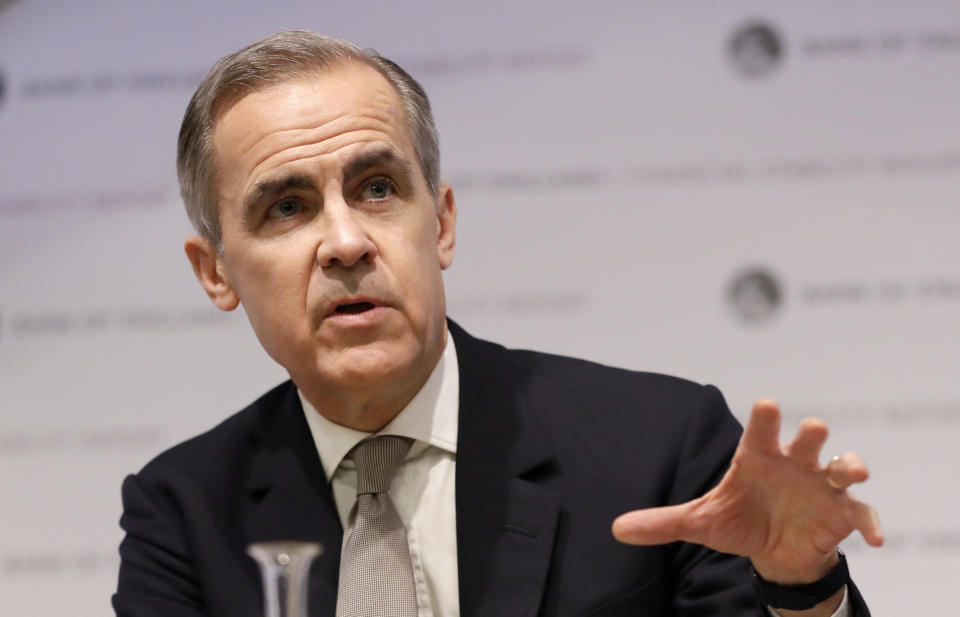Bank of England holds interest rates steady despite flatlining growth

As expected, the Bank of England on Thursday chose to hold its benchmark interest rate at 0.75%, even as the UK economy continues to experience flatlining growth.
Two members of the bank’s rate-setting monetary policy committee chose to vote again to cut interest rates by 0.25%, citing evidence of weakness in the UK economy.
The seven other members chose to maintain the bank’s current policy stance.
At 1.5%, the UK inflation rate in November came in slightly ahead of analyst expectations. But price growth remains at a three-year low, and is still markedly below the bank’s 2% target.
Analysts had expected the rate of price growth to slow to 1.4% in November.
READ MORE: Amid housing bubble, Sweden ends negative interest rates
Meanwhile, the economy sputtered in October, with figures showing GDP flatlining ahead of the general election.
At 0%, UK economic output was unchanged in October compared to the previous month, after falling 0.1% in September. Analysts had expected the economy to grow by 0.1%.
Below-target inflation and weak growth would normally prompt the Bank of England to cut interest rates and introduce measures designed to boost the economy.
But the bank has been reticent to make any major monetary policy decisions ahead of the UK’s departure from the European Union, instead signalling that it thinks growth will pick up if there is an orderly exit from the bloc.
The bank has noted, however, that it was stimulus measures were open to consideration.
“If global growth fails to stabilise or Brexit uncertainties remain entrenched, monetary policy may need to reinforce the expected UK recovery”, it said on Thursday.
The committee reiterated its baseline stance that “some modest tightening of policy, at a gradual pace and to a limited extent” will be needed if growth improves — something that could involve interest rate hikes or a scaling back of its large-scale asset purchases.
READ MORE: November sees retail sales slump ahead of Black Friday
Nevertheless, the two members of the committee who last month unexpectedly voted to lower interest rates chose to do so again.
The members, Michael Saunders and Jonathan Haskel, last month cited risks from Brexit, a slowing in global growth, and signs of a weaker job market in the UK as reasons for their decision.
Summarising their views on Thursday, the Bank of England said they thought the economy had been “a little softer than expected”.
“Core inflation was subdued. Employment growth was slowing and seemed likely to weaken further given trends in vacancies and firms’ hiring intentions,” it said of their stance.
Analysts do not expect any significant change to Bank of England policy in the short term.
“Slow-but-stable wage growth and low inflation have enabled the Bank of England to remain on the side-lines, and that’s unlikely to change until well into 2020,” said Robert Alster, head of investment services at Close Brothers Asset Management, on Thursday.
The decision comes after Britain’s financial watchdog said on Thursday that it was investigating reports that hedge funds had unfair access to audio of Bank of England events, potentially giving them an edge in financial markets.
The Times reported that a backup audio feed used to broadcast Bank of England press conferences was unknowingly sold to hedge funds and traders by a third party supplier.
This week’s meeting of the monetary policy was the second last under governor Mark Carney, who will step down at the end of January.
An announcement regarding his successor is expected imminently.

 Yahoo Finance
Yahoo Finance 